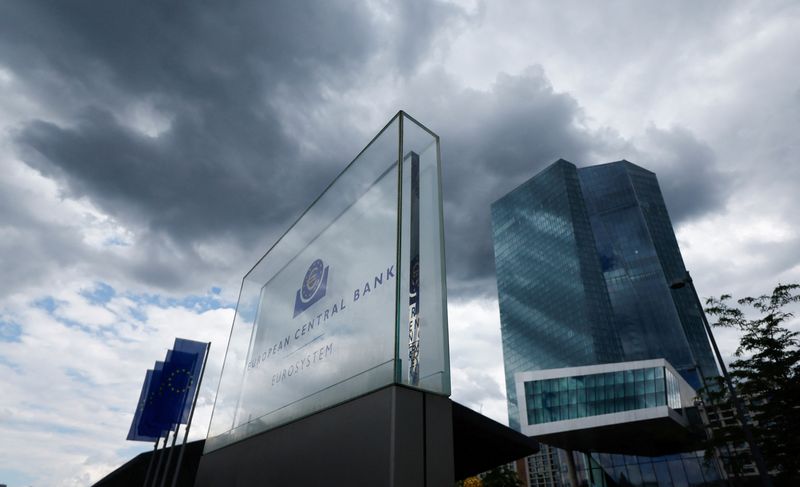FRANKFURT (Reuters) – UniCredit, Italy’s second-largest financial institution, has taken a 9% stake in Germany’s Commerzbank (ETR:) and is searching for permission to doubtlessly elevate this to 29.9%, sources advised Reuters, whereas saying it will be open to a full takeover bid.
For UniCredit to lift its Commerzbank stake above 10% will, nevertheless, want approval from the European Central Financial institution, the supervisor of the euro zone’s largest banks.
Here’s a abstract of the ECB’s position within the course of.
WHEN DOES ECB STEP IN?
ECB approval is required if a shareholder needs to amass 10% or extra in a supervised lender. There are further thresholds at 20%, 30% and 50%. A purchaser, nevertheless, can apply to amass any stake, so it could skip interim critiques whether it is cleared already for a bigger stake.
WHAT DOES THE ECB EXAMINE?
UniCredit should inform the ECB its final goal and supervisors will consider its proposal in mild of this.
It examines elements equivalent to the client’s popularity, the standard of board members it will appoint, the client’s monetary well being and the power of the goal to adjust to supervisory necessities.
The factors give some leeway, however primarily the ECB must determine if UniCredit might afford to purchase Commerzbank and stay financially sound, and if it will type a stronger group.
UniCredit is a capital-rich financial institution with loads of money and strong profitability. It has a typical fairness tier 1 (CET1) capital ratio of 16.2%, nicely above its goal of 12.5%-13.0% regardless of a beneficiant dividend and share buy-back programme.
WOULD THE ECB SUPPORT A MERGER?
It’s arduous to say with out understanding UniCredit’s particular aims. However there are clues suggesting that if structured in the correct approach, the ECB might help it.
The ECB has repeatedly stated that cross border mergers are fascinating given inefficiency and excessive prices within the euro zone financial institution sector. Euro zone banks are additionally falling behind their far bigger U.S. friends.
“Cross-border mergers have been hoped for by many authorities, and it will be very interesting to see that process unfold in the weeks to come,” ECB President Christine Lagarde stated final week.
Bundesbank chief Joachim Nagel has thus far been moderately impartial, however has outlined necessities for help.
“We need strong and robust banks so that companies can tackle and finance their future tasks,” Nagel stated this week.
“In case of possible mergers, it is important that a competitive institution is created which fulfils this task as best as possible.”
WHAT DO PREVIOUS MERGERS TELL US?
Within the largest financial institution deal thus far this 12 months, the ECB authorized a 12 billion euro ($13.4 billion) bid by BBVA (BME:) to purchase smaller Spanish rival Sabadell, solely to see the deal blocked by Spain’s authorities.
Successful over the ECB is probably not the most important hurdle that UniCredit would face, a takeover of Commerzbank would have deep political implications as it will see Germany, Europe’s largest economic system, cede management of its second-largest financial institution.
HOW LONG IS THE PROCESS?
The ECB has 60 days to approve a request and this may very well be prolonged by 30 days. The method normally takes the majority of this time, so no fast resolution is probably going.

WHO MAKES THE DECISION?
The ECB supervisory board, with representatives from all euro zone members, should log off on any deal and the rate-setting Governing Council would additionally get to look in a non-objection process.




